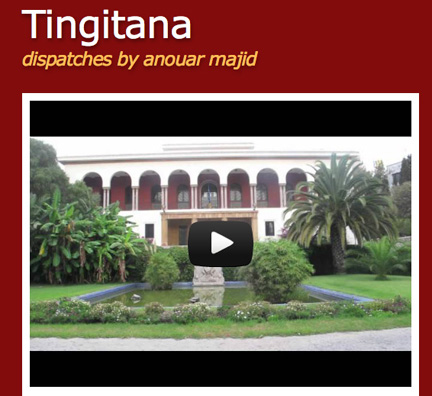
Anouar Majid provides a short video of scenes from Tangier today. Check it out at Youtube.

Tunisian Salafists; Photo by Reuters
By Anouar Majid
Many people in the Muslim world are scrambling to get out from centuries (not just decades) of tyranny and build a good future for themselves and their descendants. They want to catch up to the West, build strong economies, and invent things that would make their nations proud, but they keep slipping further behind nations that were once their peers. This regression only intensifies their desire to get respect. With nothing to show for their pride, they go back to the distant nebulous past to sing the glories of long-dead warriors and savants. An imagined glorious history is a safer bet than the dysfunctions of the present or the bleak promises of the future.
It is this attachment to the past that produces the kind of extremism many of us find abhorrent. The new offenders these days are the Salafists, a loose confederation of Muslim literalists who believe that the pristine faith of the seventh century is the best remedy to what ails Muslim-majority nations today. Sporting robes and beards, they have declared war on churches, women with skirts, bars, insufficiently pious Muslims, and anything that smacks of the false West. Even Islamist parties, including Hamas, are not immune to the Salafist righteous indignation. Continue reading Muslim Salafists and Moderates: What’s the Difference?
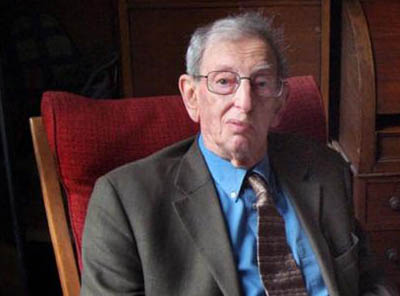
by Anouar Majid, Tingitana, October 3
Eric J. Hobsbawm, the great British historian, has died. I spent many hours and days with him in the first years of this new millennium, reading his account of the long 19th century, with its ages of revolution, capital, empire and, if the short 20th century is added to this panoramic view, of extremes. Born in Egypt in 1917, orphaned early through the loss of his two parents, he moved to England, excelled in his studies, and championed communist ideals even after they had long been discredited in our brave new world order of unbridled capitalism.
The ages he covered changed our world irrevocably. Tea, Morocco’s national drink, was introduced to that country in the heyday of the age of capital (1848 – 1875), when free trade ruled the British waves. British products and habits, invented at home or borrowed from others, were the hallmarks of a good life. British arms and tea were part of the same deal. Then the UK entered a process of decline and was eventually supplanted by the United States as the world’s newest capitalist superpower. And now, Hobsbawm told us in On Empire (published in 2008), America’s power is also waning. It is true that the world adores American culture and its products, but such Americanization is not necessarily an expression of America’s power. Nineteenth-century Britain introduced soccer, tennis, golf, alpinism and skiing, as well as business wear, but such things today have nothing to do with the power of Britain.
Hobsbawm’s prophetic voice came through despite his quiet, introvert ways. He stayed true to Communism because he believed in a better world. “I still think,†he told the New York Times in 2003, “it was a great cause, the emancipation of humanity. Maybe we got into it the wrong way, maybe we backed the wrong horse, but you have to be in that race, or else human life isn’t worth living.â€
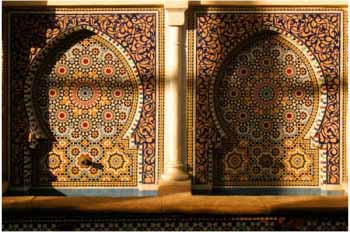
By Anouar Majid
The violence that erupted in the wake of the YouTube on the Prophet Mohammed is a wake-up call to all who care about the future of human civilization and, particularly, that of Arabs and Muslims living in Muslim-majority nations. (Muslims living in the United States are having the time of their lives—the land of what Iranian mullahs call Great Satan is the best place on earth for them.) Still, Muslims everywhere have been unable to unbind their ties to religious orthodoxy, clinging tenaciously to the decrees of religious scholars in mosques, as well as to the fatwas pronounced on the tube and the net alike.
I arrived in Morocco, arguably the most liberal country in the Arab world and a reliable partner of the West for decades, on the eve of the YouTube trailer controversy. As soon as I heard about the murders in Libya and the violent protests in Egypt and elsewhere, I chose not to be silent in the face of Islamist fury. I spent time explaining to cab drivers, unemployed youths, poorly educated workers, and highly educated professionals that the US government can’t control what people post on the Internet. I tried to get my interlocutors to understand that Muslims are laughably easy to manipulate—all one only has to do is draw a caricature of the Prophet or make a film about him to turn them into the world’s laughingstock. Continue reading Islam Without Red Lines
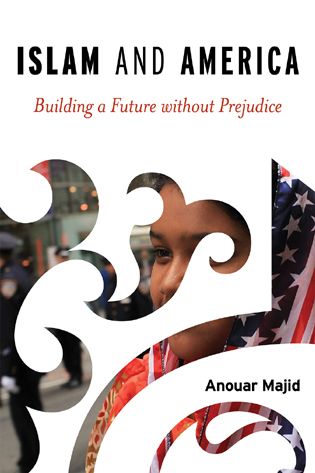
[Webshaykh’s note: The Moroccan American scholar Anouar Majid, Founding Director of the Center for Global Humanities and Associate Provost for Global Initiatives at the University of New England, has recently published a book well worth reading. Following on his earlier analysis of the evolving relations between America and the Islamic world, this is a personal foray that calls for building a future of mutual respect without prejudice. Below is a brief excerpt, but I heartily endorse reading the entire book, Islam and America.]
I know for a fact that Muslims and Americans can engage in meaningful discussions that can lead to progress, if such discussions are anchored in some knowledge of history. I witnessed such debates in Rabat, Morocco’s capital. in 2005, after I had given a lecture to a packed hall of Moroccan and American students, as well as a couple of officers from the US embassy, on the meaning of American freedom. At that time, the US government was trying hard to reach Muslims, but Muslim skepticism and fear were aggravated by US military actions in the region and by the aspersions cast on their religion in the media. Still, the topic of freedom generated such a lively debate that it planted the idea for this project in my consciousness.
As I did with the topic of freedom in Rabat, I am using this book to survey American-Muslim relations within the old clash of religions before we ask ourselves –Muslims and non-Muslims alike –whether our beliefs and prejudices still make sense today. I wouldn’t be surprised if my readers –American and Muslim, Israeli and Palestinian, Jew and Arab, or just simply religious and secular – found themselves uncomfortable at different points in the narrative. No nation, religion, or ethnicity gets a free pass, not because I want to be provocative, but because I am at a point in my life when, both intellectually and, even more importantly, emotionally, such rigid tribal divisions mean very little to me. The blind passions they engender are plunging our already fractured world into a deepening abyss. If gun lobbyists in the United States often claim that people – not guns – kill, then we must make sure that people carrying guns are not ideologically predisposed to shoot. I do respect the intensity of religion or nationalist convictions, but I also hope that such sentiments do not prevent us from engaging in serious conversations about our common future.
Excerpt from Anouar Majid, Islam and America: Building a Future without Prejudice (Lanham, MD: Rowman and Littlefield, 2012, p. 20).
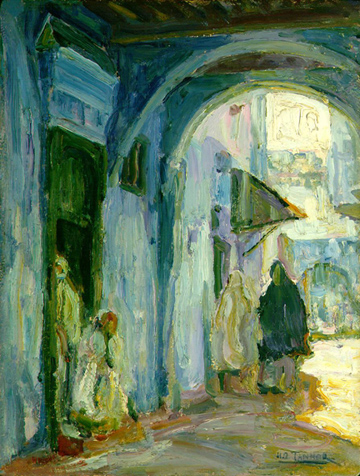
Street in Tangier, by Henry Ossawa Tanne, ca 1910
Tabsir Contributor Anouar Majid, will be giving two talks in Morocco in March. Details below:
“Todos somos moros: una invitación para un debateâ€
Conferencia de Anouar MajidFecha: 12-03-2012
Lugar: Salón de Actos. Fundación Instituto Euroárabe. Colegio de Niñas Nobles. C/ Cárcel Baja, 3.
Hora: 19:30Anouar Majid, (Tánger, Marruecos), es director del Centro de Humanidades y director adjunto de Iniciativas Globales de la Universidad de New England, Portland, Maine, (EEUU). Reconocido analista del papel del islam en la edad de la globalización y de las conflictivas relaciones del islam con Occidente desde 1492. Autor de “We are all Moors: ending centuries of Crusades against Muslims and other minoritiesâ€,â€A call for heresy:why dissent is vital for Islam and Americaâ€, “Freedom and Orthodoxy: Islam and difference in the post-Andalusian ageâ€, “Si Yussefâ€(novela)…Ha sido descrito por el filósofo y profesor de la Universidad de Princeton, Cornel West, en su obra “Democracy mattersâ€, como “uno de los escasos intelectuales islámicos de envergaduraâ€. Dirige la revista norteamericana-marroquà de ideas y cultura TingisRedux y colabora asiduamente en el Washington Post, Chronicle of Higuer Education y otras publicaciones.
Su conferencia, que reflexiona a partir del lugar destacado que históricamente ocupa España en el clima de desconfianza secular entre árabes y occidentales, trata de demostrar que las claves de una transición democrática y de una polÃtica económica con la diversidad como lema en el mundo árabe e islámico deben ser halladas en los antiguos territorios de Al Andalus.
Understanding American-Muslim Relations
Professor Anouar Majid
American Legation, 8 rue d’Amérique, Tangier.
Friday, 16 March, 19:00 Continue reading Majid in Morocco
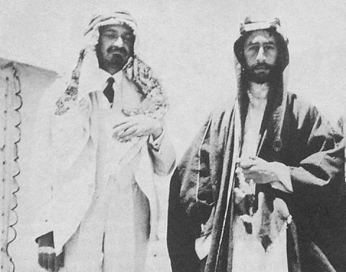
In 1918 the future king of Iraq, Faysal, met the Zionist leader Chaim Weizmann in Syria
by Anouar Majid
Â
As Arabs continue to agitate for freedom in their nations, no leading Arab or Muslim intellectual has been able to articulate a well thought-out program for the future of his or her country, let alone for the amorphous entities known as the Arab and Muslims worlds. Plenty of euphoria is being generated by getting rid of despots, but the expectations generated by the uprisings in Tunisia, Egypt, and Libya, as well as structural reforms in other places, have been limited to the language of morality, whose champions, as is amply evident by now, are Muslims wearing various garbs of moderation to reassure secularists in their midst and assuage the rest of the world’s apprehensions.
Â
Many Muslim citizens seem to trust pious politicians to establish a culture of accountability and transparency, fight corruption, institute democratic reforms, guarantee impartial justice, rebuild their nations’ abysmal infrastructure, reduce unemployment, and lead their countries to a new age of prosperity. In their view, the miracle of development would happen magically, through no more than the strict adherence to Islamic ethics. No manifestos or declarations are needed to chart a clear path; faith, and faith alone, would be enough to cleanse Arab societies of decades of decadence. Constitutions are being written or rewritten, to be sure, but such documents don’t convey the power of vision embodied in other forms of narrative, like the American Declaration of Independence (1776) or, better still, Theodor Herzl’s The Jewish State (1896) and his not-so-utopian novel Old New Land (1902).
Â
Theodor Herzl may strike Arabs and Muslims as an odd choice to invoke in these heady days of freedom and hope. He is, after all the leading figure of modern Zionism and the architect of the State of Israel. He is also blamed for uprooting Palestinians from their native land and condemning them to a tragic fate. Continue reading Looking for an Arab Herzl
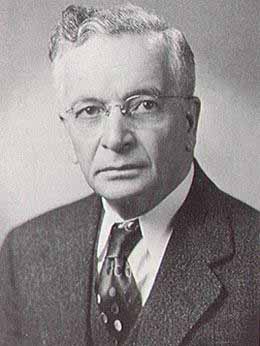
Dr. Michael Abraham Shadid (1882-1966), who founded the first medical cooperative in Elk City, Oklahoma in 1931.
By Anouar MajidÂ
Â
The sudden and tragic death of Anthony Shadid affected me in ways I had not anticipated. As a childhood asthma sufferer, I always pay attention when I hear about such death-causing attacks, but Mr. Shadid’s untimely death in Syria left me wondering about how a man who had endangered his life to report on the troubled region of the Middle East was destined to die in the land of his ancestors. I don’t know much about his life beyond what has been reported, but through a brief exchange I had with him recently, I now read his death as part of the dramatic encounter between the Middle East and the United States since the late nineteenth century.
Â
The story for me begins with Mr. Shadid’s relative, Dr. Michael Shadid, an unsung national hero. A couple of years or so ago, I came across the story of one Michael Shadid, a progressive Syrian (as Arabs from the Levant were known at the turn of the 20th century) immigrant who tried to change healthcare in the United States and left a legacy that could inspire us today as we desperately search for the right solutions. I also wrote about him on TingisRedux .
Born in a tiny village on the slopes of Mount Lebanon in 1882, in a household of nine siblings and a widowed mother, Michael Abraham Shadid overcame nearly insurmountable odds to get an American education in Beirut before finding a way to get out of his native land in search of a better life in the United States. Like many immigrants, he was mesmerized by the sight of New York and America’s possibilities. He worked hard peddling jewelry and trinkets, got a medical education, and, moved by the suffering of poor people in Oklahoma, fought against entrenched interests to establish the first cooperative medical facility in Elk City. Continue reading Anthony Shadid: An American Story